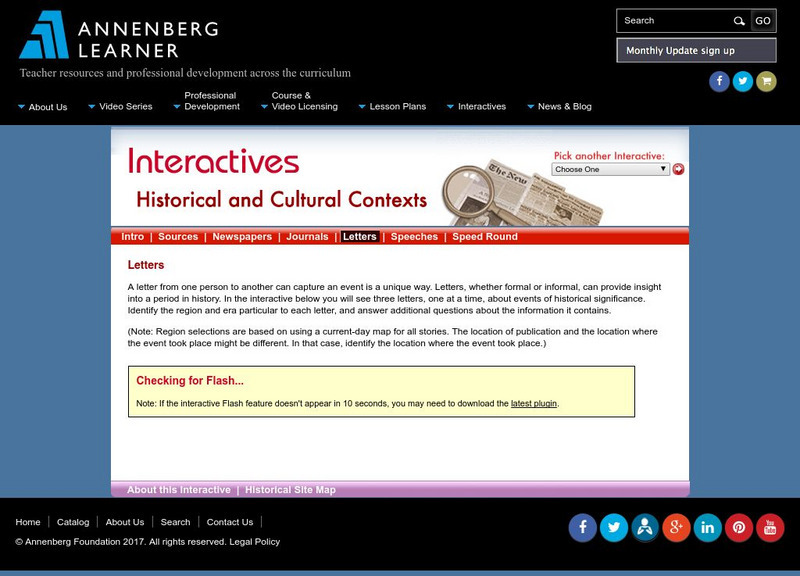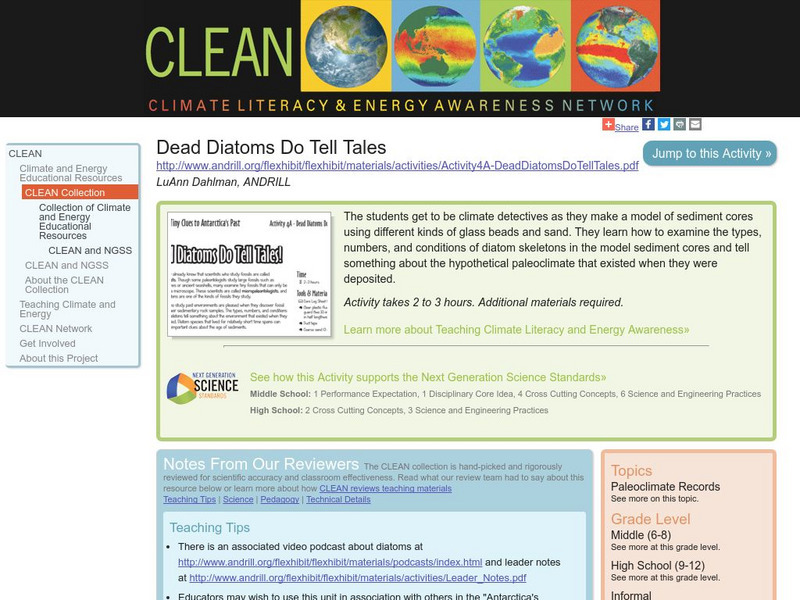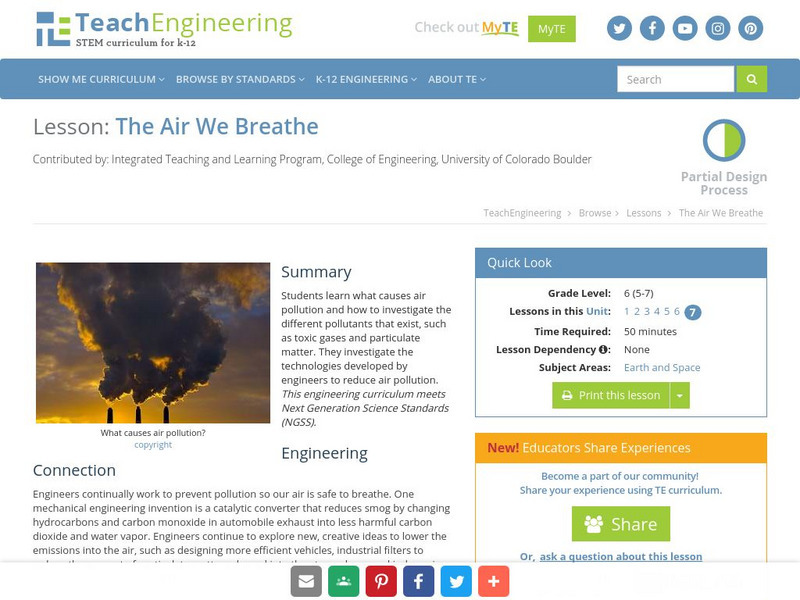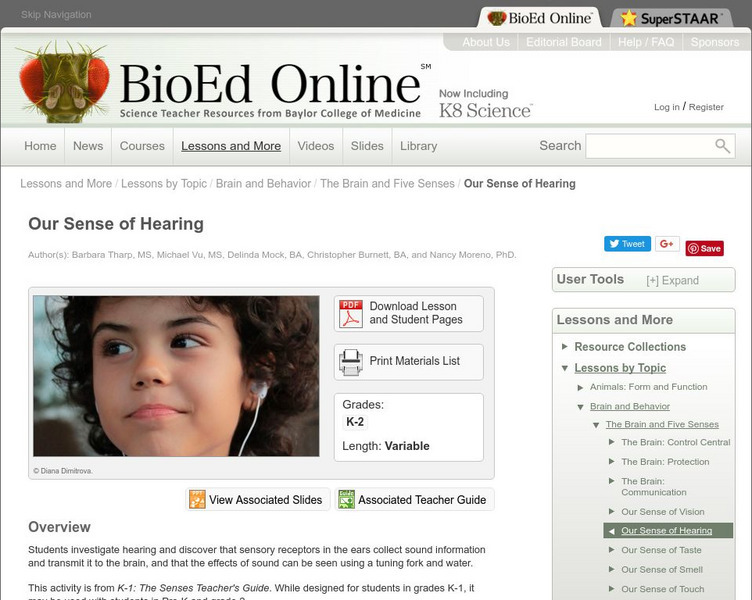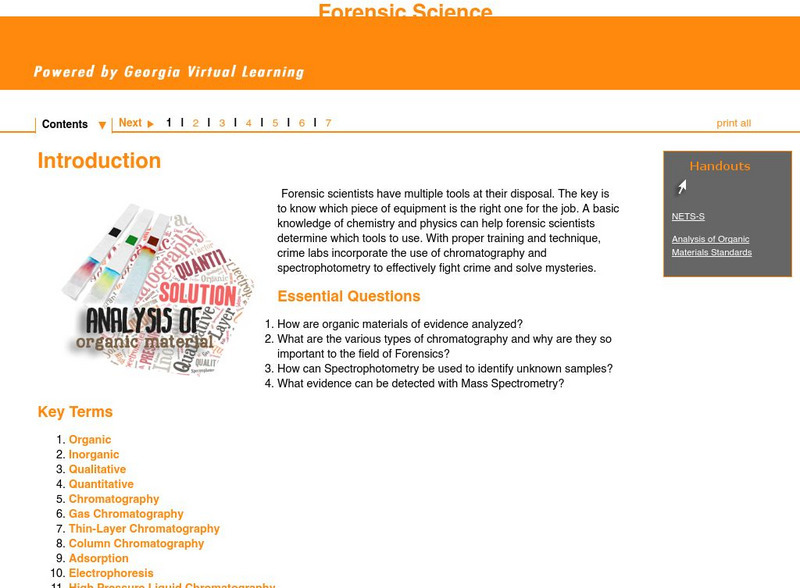Tate
Tate Museum: The Case of the Mysterious Object; Henry Moore Sculpture
Learn about a sculpture by the British monumental figurative sculptor, Henry Moore, in this interactive investigation of a piece by Moore, which looks at every apsect of the piece from how it was made to who made it.
National Health Museum
Access Excellence: Dna Detectives
A hands-on activity from Access Excellence for advanced biology classes. Students are given a crime scenario and three suspects. Their mission is to determine 'Who Dunnit?' by obtaining and analyzing DNA samples. Requires extensive...
Annenberg Foundation
Annenberg Learner: Letters: Use Your Document Detective Skills
Read three letters, one at a time, about events of historical significance. Identify the region and era particular to each letter, and answer additional questions about the information it contains.
PBS
Pbs Learning Media: The Hound of the Baskervilles 1: Meet Sherlock Holmes
Students investigate the iconic and much-beloved character of Sherlock Holmes, as well as the mystery genre, in this excerpt from Masterpiece's 2002 version of The Hound of the Baskervilles. As students are introduced to Holmes, they use...
Cyberbee
Cyberbee: Who Dunnit?
If you are a crime scene investigation (CSI) fan, then you will love this site! You get to be the detective by examining the evidence, viewing the crime scene, dusting for fingerprints, interviewing the suspects, and solving the crime.
Federal Bureau of Investigation
Fbi Youth: Grades 6th 12th
Explore the FBI by joining agents as they investigate crimes around the world, following a case through the FBI Lab, look at a day in the life of an FBI agent, and more!
Climate Literacy
Clean: Dead Diatoms Do Tell Tales
Students take on the role of climate detectives in this climate investigation. Teams make a model of sediment cores using glass beads and sand, study the core samples, and tell something about the hypothetical paleoclimate that existed...
Council for Economic Education
Econ Ed Link: What Happened to Railroads?
Between the Civil War and World War II, railroads were one of the nation's most important businesses and an integral part of people's lives. In this lesson, students assume the role of detectives investigating why the rail companies...
Blackdog Media
Classic Reader: The Golden Scorpion by Sax Rohmer
This is the full text of the novel The Golden Scorpion by Sax Rohmer, a sequel to The Yellow Claw. Sax Rohmer's famous detectives Gaston Max and Inspector Dunbar investigate an international gang of assassins that is mysteriously linked...
TeachEngineering
Teach Engineering: The Air We Breathe
During this lesson, students will learn what causes air pollution and how to investigate the different pollutants that exist, such as toxic gases and particulate matter. Students will investigate the technologies developed by engineers...
National Institutes of Health
National Library of Medicine: Spectral Detection
This concise site provides a brief discussion of the invention of the first work spectroscopes and their impact on forensic science.
National Institutes of Health
National Library of Medicine: The Marsh Test
The Marsh Test, developed in 1832, was designed to detect poison in drinks. A short history of this test is provided along with photo of the test apparatus.
TeachEngineering
Teach Engineering: Particle Sensing: The Coulter Counter
Students are presented with a short activity on the Coulter principle, an electronic method to detect microscopic particles and determine their concentration in fluid. Depending on the focus of study, students can investigate the...
Rice University
Rice University: Med Myst: Medical Mysteries on the Web
Two problem-solving detective games, each with its own series of missions, involve players in microbiological investigations into the causes and spread of diseases. Concepts covered include disease pathology, Koch's principles, immune...
Rice University
Rice University: Web Adventures: Med Myst: Orientation at o.r.b
In this online learning adventure game, students get an introduction to infectious diseases, pathogens and the immune system. They will conduct field and laboratory investigations to solve the problem they are given, while playing the...
Rice University
Rice University: Web Adventures: Med Myst: Peril in Prokaryon
This is the second in a series of five missions in the MedMyst series adventure games. Students will conduct field and laboratory investigations to solve the problem they are given, while playing the role of detective, scientist, and...
BioEd Online
Bio Ed Online: Our Sense of Hearing
What causes sound? How do our ears detect sound? How do our brains recognize sound? In this lesson learners investigate hearing and discover that sensory receptors in the ears collect sound information and transmit it to the brain, and...
BioEd Online
Bio Ed Online: Our Sense of Smell
How does our sense of smell work? In this lesson learners use four different flavors of dry soft drink mix to investigate the sense of smell, and learn that the nose can detect very small particles in air, and transmit the information to...
Rice University
Rice University: N Squad: Alcohol and Body Systems
Three problem-solving detective games involve players in investigations of the effect of alcohol on the body's digestive, circulatory, and nervous systems.
Beacon Learning Center
Beacon Learning Center: Information Elimination: Lesson on Narrowing the Topic
This is a tutorial which focuses on how to narrow the topic for expository writing, how to determine what information to keep or eliminate, and what questions to ask yourself. Students respond to questions throughout. A comparison is...
Georgia Department of Education
Ga Virtual Learning: Analysis of Organic Materials Analysis of Organic Materialsv
This comprehensive interactive tutorial continues to explore the forensic science field. Learn how organic materials of evidence are analyzed and what the various types of chromatography are, especially why they are so important to this...
Louisiana Department of Education
Louisiana Doe: Louisiana Believes: English Language Arts: Grade 6: If Stones Could Speak
Sixth graders will explore history and will learn that archaeologists, like detectives, work to piece together the past through investigation. Archaeological research provides us with stories of human history that help us understand the...
Other
Sherlockian.net: The Life of Holmes' Creator
This is a fabulous site for the Sherlock Holmes lover. Provided here is a brief biography of Holmes' creator Sir Arthur Conan Doyle along with many other links to Sherlockian information.
National High Magnetic Field Laboratory
Magnet Academy: Karl Jansky
Karl Jansky discovered extraterrestrial radio waves while investigating possible sources of interference in shortwave radio communications across the Atlantic for Bell Laboratories, and is often known as the father of radio astronomy....




